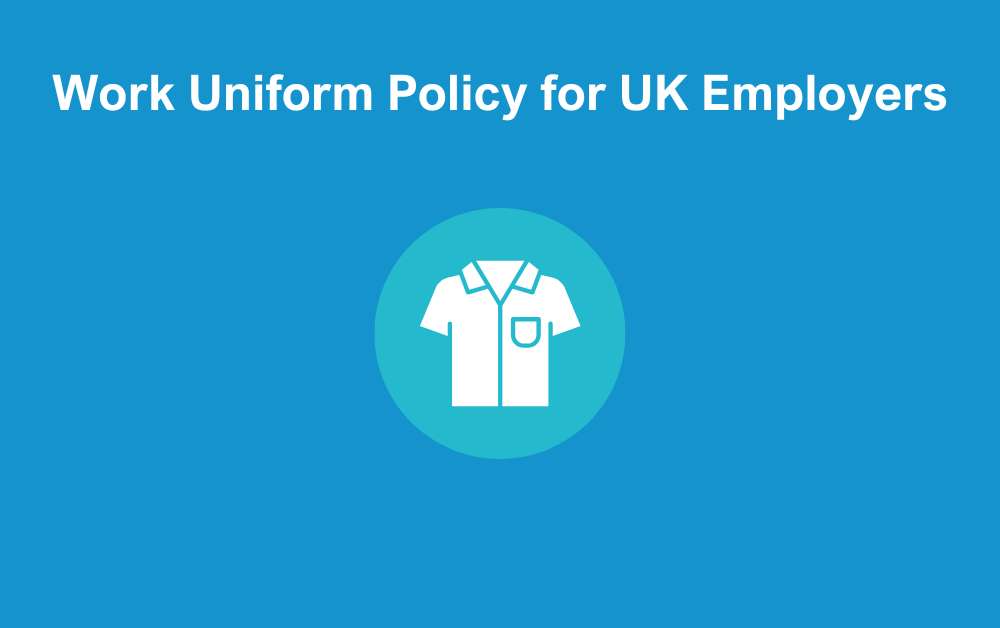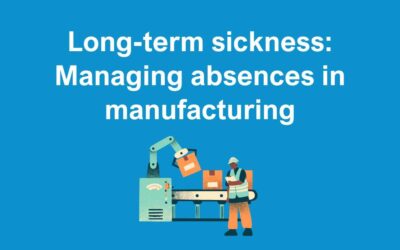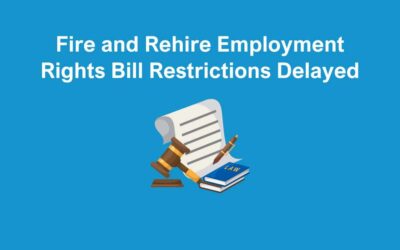In the UK, there are no specific laws that directly regulate dress codes or work uniforms. Therefore, employers can introduce a work uniform policy that suits their organisation, whether for branding, professionalism or health and safety. Even so, any rules must be reasonable, applied consistently and aligned with equality requirements to ensure they don’t place certain groups at a disadvantage. Understanding how work uniform laws UK considerations fit within wider employment obligations helps employers set clear expectations while maintaining a fair and inclusive workplace.
What is a Work Uniform Policy?
A dress code is a company regulation that sets out the attire that is expected to be worn at work. The most common reasons employers implement such policies is for health and safety reasons. For example:
- Keeping hair tied back
- Using a hairnet when working in the kitchen
- Avoiding wearing jewellery when working with medical patients
- Wearing protective clothing when handling hazardous substances
- Protective clothing, such as hi vis, safety shoes or overalls
- PPE in healthcare
Employers may also set uniform guidelines to support a consistent corporate image. Other reasons may be to help clients easily recognise members of staff.
Understanding Work Uniform Laws in the UK
There is no single piece of legislation covering uniforms. However, there are several UK laws influence how a uniform policy should be applied. The Equality Act 2010 plays a major role, as employers must ensure the policy does not discriminate against protected groups. This includes making adjustments for religious dress, pregnancy, gender expression or disability where required. Your dress code should treat men and women equally while recognising differing needs. It should include reasonable adjustments for employees with disabilities.
Uniform rules must also be proportionate and genuinely linked to business needs. Expecting customer facing staff to wear a branded shirt may be reasonable, while imposing the same rule on back office employees could be harder to justify.
Do I have to pay for employee’s uniforms
Who pays for employee uniforms? This is a question that comes up a lot. Employers do not have to pay for compulsory uniforms, but they must provide personal protective equipment at no cost to any worker who needs it. This applies to all staff, not just people who need it for health and safety reasons. PPE should be returned when employment ends, and the cost of replacement can only be deducted if the contract clearly allows this.
Although uniform costs do not have to be covered, many employers offer an allowance or provide a set number of items to support compliance and maintain good relations. Anything a worker buys themselves belongs to them and does not need to be returned.
Deductions for uniform costs are only lawful if the contract clearly permits them. Even then, pay must not fall below the minimum wage once any deductions are applied.
Do you need a work uniform policy?
Dress codes aren’t unlawful in themselves, but they can cross into discrimination if they reinforce outdated gender expectations. Under the Equality Act 2010, staff must not be treated differently due to any of the nine protected characteristics, including gender, pregnancy and maternity, disability, and religion or belief. These areas need careful attention.
- Pregnant employees may need flexibility around footwear, fit, or comfort.
- Staff with disabilities might require reasonable adjustments to meet health or accessibility needs.
- Requirements that conflict with religious dress can also amount to discrimination unless there is a clear and justified reason.
Government guidance confirms that dress standards can differ for men and women, but they must be equivalent. If a rule places one gender at a disadvantage, it risks being discriminatory. For example, requiring women to wear skirts, make up, or jewellery without an equivalent standard for men is unlikely to withstand scrutiny.
Many employers fall into the trap of copying what others do. Instead, look closely at your dress code and consider whether each rule is genuinely necessary and fair. Even policies that seem neutral at first glance may have unequal effects, so it’s important to understand how they impact different groups and ensure no one is treated less favourably.
How to deal with staff complaints
Concerns about uniforms or dress codes can arise for many reasons, so it helps to have a clear process in place for managing them. Start by listening to the employee’s issue in full and checking whether the policy has been applied correctly and fairly. In some cases, the concern may highlight an accessibility need, a cultural requirement or a genuine discomfort that warrants an adjustment.
If the complaint relates to equality, treat it seriously and seek HR advice where needed. You may need to explore reasonable adjustments, review the wording of the policy or assess how managers have enforced it. Where a requirement is lawful and necessary, explain the rationale and how it supports safety or business needs. Good communication can often resolve misunderstandings before they escalate.
It’s also useful to regularly review complaints to identify any recurring issues. Patterns can indicate a problem with the policy itself or with how it is being implemented. Involving staff in these reviews can improve understanding and help build a more inclusive approach.
Conclusion
A work uniform policy can help maintain safety, professionalism and consistency across your organisation, but it must be balanced with fairness and legal compliance. UK employers have considerable flexibility in setting dress standards, yet that freedom comes with responsibilities under equality legislation and wider employment law.
By ensuring your policy is reasonable, inclusive and clearly linked to business needs, you reduce the risk of discrimination and strengthen trust with your workforce. Regular reviews, open communication and a willingness to make adjustments where appropriate will help keep your dress code effective and aligned with modern workplace expectations.
Contact Us
If you would like support in reviewing your current work uniform policy or resolving a dispute, out HR experts can help. Contact us today.







